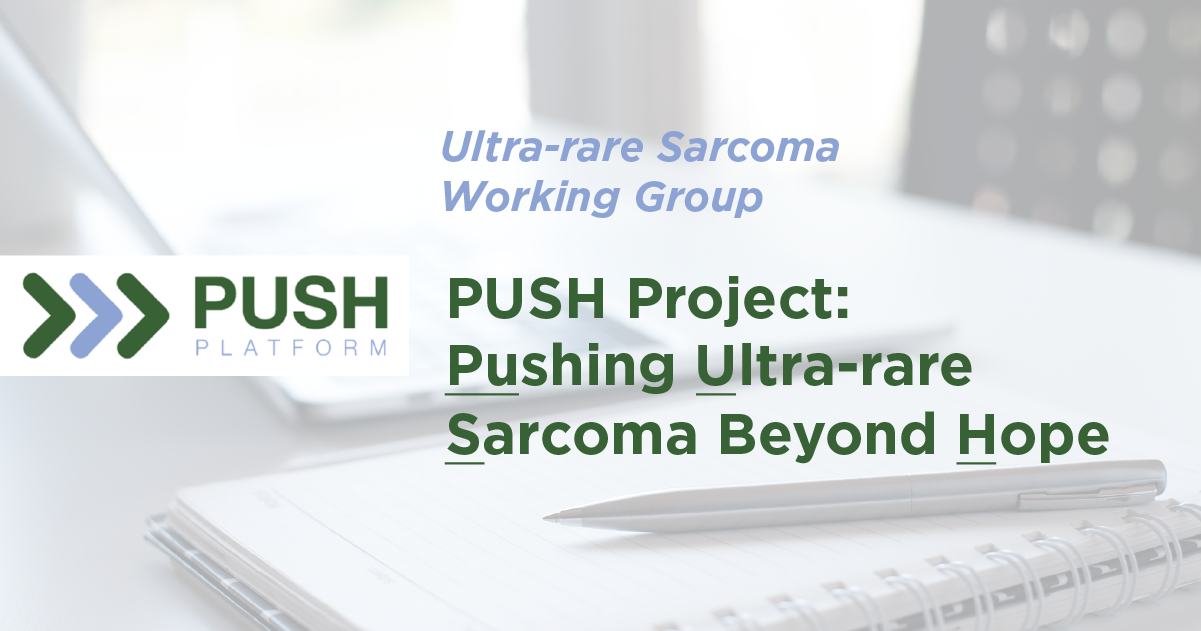Under the umbrella of the Connective Tissue Oncology Society (CTOS), the Ultra-rare Sarcoma Working Group, a broad group representing the global sarcoma community, including clinicians, scientists, patient advocates, and non-profit organizations has come together to establish a consortium, PUSH, to collect and make the best use of all available evidence to facilitate the development of new treatments for patients with ultra-rare sarcomas.
EHE and all ultra-rare sarcomas face significant barriers to research and treatment development. Some of these challenges are:
- Minimal natural history data on all aspects of the diseases, and an acute lack of research funding to address this need
- Few and poorly defined treatment options
- Major hurdles in designing and performing large, randomized clinical trials within a reasonable timeframe and cost
- Difficulties in treatment development and drug access, with low interest from commercial drug developers
PUSH aims to overcome these and other challenges and speed up progress in finding effective treatments for these diseases. The central aim of the PUSH platform is to maximize the knowledge gained from the treatment and observation of every ultra-rare sarcoma patient, ultimately supporting the development of new treatments, and improving treatment outcomes and patients’ quality of life.
The platform will collect prospective and retrospective data on patients worldwide regardless of their treatment, whether it is standard of care, an off-label treatment, a new investigative agent, or active surveillance (wait-and-watch).
Importantly for EHE patients, PUSH will incorporate patient-donated data from registries, structured surveys, patient-reported outcomes, and quality-of-life questionnaires – raising the urgency for EHE patients to participate in patient-led research efforts like the EHE Global Patient Registry and EHE Biobank. Data will support the design of prospective studies, for external controls when randomization is not feasible, and support the initiation of clinical trials. Ongoing consultation with regulatory agencies aims to ensure that the data used is suitable for review and consideration, given the significant challenges of researching ultra-rare diseases.
As patient advocates, Denise Robinson and Hugh Leonard meet with global expert leaders of PUSH bi-weekly to bring progress in its governance and keep EHE research moving forward on this platform. One of the first projects of PUSH will be a prospective study of sirolimus in progressive EHE. Stay tuned as we work to PUSH for effective treatments in EHE.

